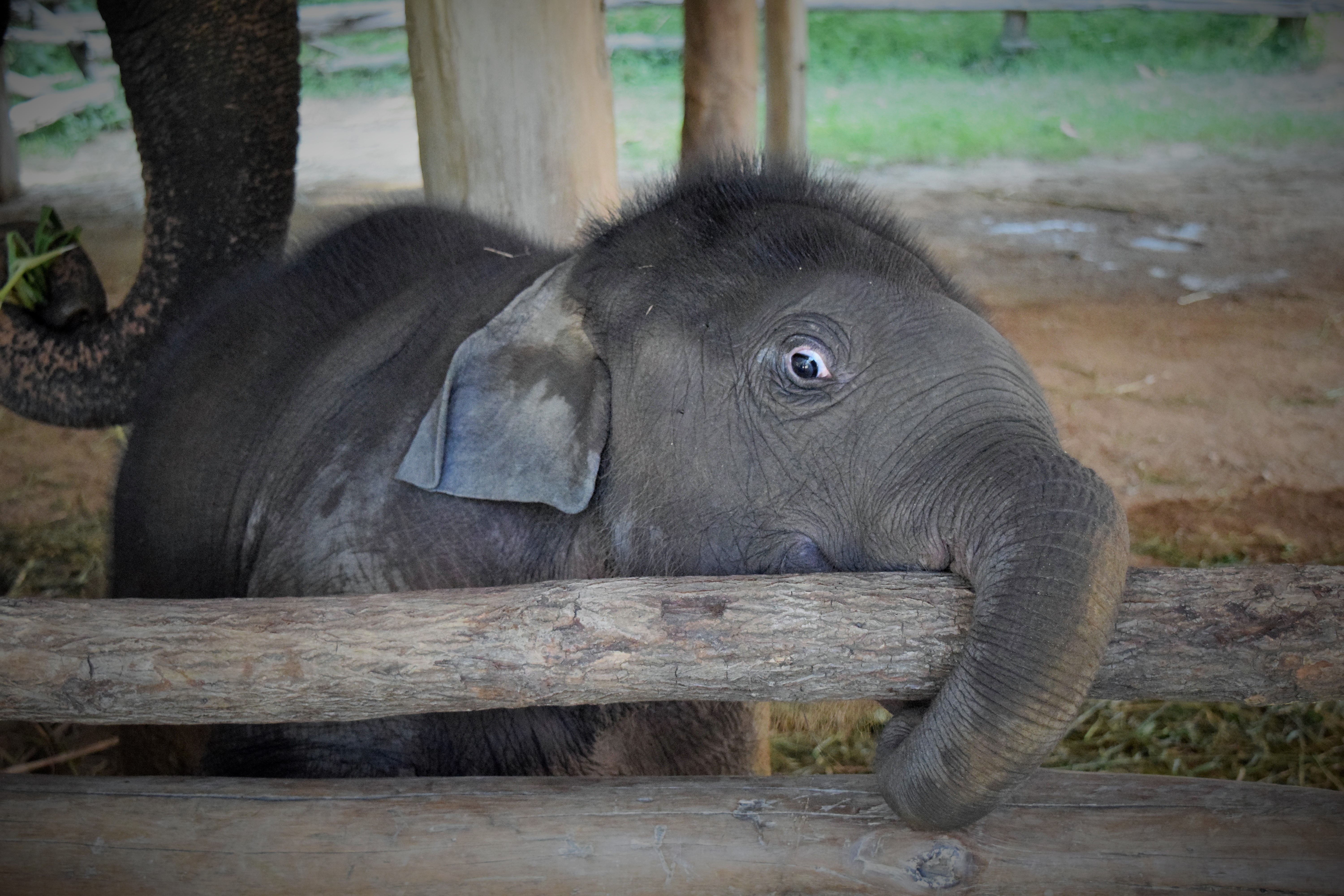
There’s no denying elephants are pretty majestic creatures. Thanks to their large size, their sensitive disposition, and their incredible plight from poachers and ivory hunters, these animals are quick to capture headlines and animal-loving hearts alike.
Ready to find them even more fascinating? Here are 10 slightly random but totally incredible facts about our favourite pachyderms.
They’re the only mammal that cannot jump

They can run, but they can’t jump, skip, or hop—an elephant always has at least one foot on the ground at all times. According to scientists that’s because unlike other mammals, elephants have leg bones that all point downward so they can’t “spring” upwards. Nor do they have to: most animals that jump evolved to do so to get away from predators, but elephants have other ways of protecting their plus-sized selfs.
They’re right or left “handed”

Humans have a preferred hand, but elephants have a favoured tusk. According to experts, these animals prefer to use one side of their body when it comes to foraging, digging, and stripping bark. As a result one tusk eventually wears out more quickly than the other, and that side may be shorter, too.
They poop… a lot

An adult elephant can eat anywhere from 200-600 pounds of food a day, what with the grass, foliage, bark, twigs, fruit, and other vegetation they like to munch on. That means a whole lot of excrement to go with it—up to 300 pounds per day, in some cases. With numbers like that, it’s no wonder people have found some pretty creative uses for extra elephant manure.
Elephants actually never forget

These pachyderms may have terrible eyesight, but as it turns out they never forget a face. Scientists say that elephants not only recognize each other after years of separation, but their recall power also allows them to remember routes to other food and water sources when their usual sources dry up. According to researchers, that’s a key way the creatures have survived over the years.
They know how to snorkel

An elephant’s trunk can do many marvellous things, from picking up delicate leaves to allowing the animal to breathe underwater… or snorkel, if you will. Thanks to the long hose-like shape of their trunk, they can spend long periods of time underwater without technically coming up for air. All they need to do is poke their trunks out above the water’s surface and then carry on their merry way.
They grieve like we do

Elephants are mighty but they’re also pretty sensitive. They console and comfort each other, and they grieve the loss of their own. It’s been said that an elephant will pause for a moment of silence if it passes by an area where another elephant it knew died, and elephants also have funeral rituals that include covering the deceased’s body with leaves and grass.
They’re scared of bees

It’s funny to think that a majestic creature like the elephant could be scared of tiny little insects like bees, but hey–we’ve all got our things. Elephants actually hate bees so much that they even have a special alarm call they’ll use when they hear a hive buzzing. As for the myth that elephants are scared of mice? Totally untrue.
The pregnancy struggle is real

It turns out that elephants have the longest pregnancy in the animal kingdom: 22 months from conception to birth. That’s 95 weeks, or 660 days, for those keeping track. Luckily for the poor elephant moms out there, they can only have a calf every three-to-four years, with an average of four births in their 70-year lifespan.
Mothers rule the roost

Female elephants live in groups of about 15 animals, with each one led by a matriarch. Typically that’s the oldest elephant in the group, and she decides when and where her heard will move from season-to-season (or from day-to-day). Meanwhile male elephants leave their matriarch groups when they’re about 12-15 years old, when they go to live with all-male groups instead.
They get sunburned

Like humans and hippos, elephants can also get sunburned if they have too much fun in the sun. That’s why they coat their backs and heads with sand: it helps to keep pesky bugs away while also acting as a natural defence against the sun.
